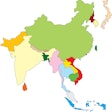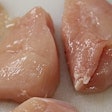A report on a recent study on consumer attitudes towards welfare, conducted by agricultural economists F. Bailey Norwood and Jayson Lusk at Oklahoma State University, was published in Farm Gate, a University of Illinois journal. Only 29% of the responders regarded "welfare" to be of low importance. Almost 70% maintained that “animals should not suffer” but that “happiness” is not a consideration with regard to food producing livestock.
A majority of consumers [58%] supported relevant legislation to prevent cruelty and a quarter of those questioned supported the principle of laws to ban housing systems opposed by the majority of citizens. There appears to be considerable support for voluntary labeling of food products with almost half of the respondents in favor of some visible indication of welfare standard and housing system.
The authors of the review analyzed the campaign mounted by United Egg Producers and proponents of confined housing for egg production in relation to the opposition raised by HSUS and kindred organizations. The conflict is entrenched in public perceptions of animal wellbeing and the definition of "welfare." The discrepancy between theory and practice allows organizations opposing intensive animal production to inject emotion into the debate and to distort facts and scientific knowledge to advance their cause.
Based on the most recent ballot in Ohio which supported the establishment of a livestock welfare body and preemptive legislative action in a number of states regarding the regulation of livestock housing and management practices it is most probable that HSUS will review their future action previously predicated on the overwhelming success of California Proposition 2. It is presumed that HSUS will now revert to a "Federal Strategy" in order to establish a uniform code, banning confinement and mandating specific production practices which conform to their ultimate agenda of eliminating intensive livestock production. In all probability, strategists at HSUS have opted to divert funding to lobbying activities directed at federal legislation rather than expend resources and money promoting ballots in individual states where constitutions permit the involvement of citizens in legislation.
Accordingly the livestock industry should be alert to any campaign funding or other support by HSUS and PETA on legislators sympathetic to their cause, based on perceived opinions of their constituents. Pending legislation, especially relating to agriculture and food production or public health must be carefully scrutinized for the inclusion of provisions which may impact current methods of housing and management. At the same time the egg and hog industries should carefully evaluate existing practices and eliminate any procedures that could be regarded as inhumane or a deviation from scientifically accepted welfare standards.



















